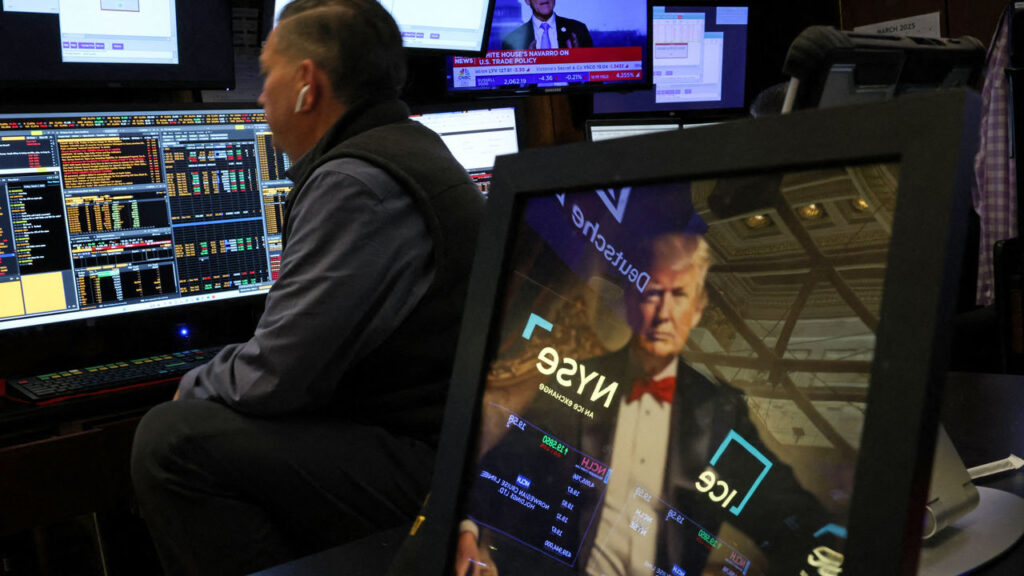The term “Trumpiest firms” refers to companies that are closely associated with Donald Trump, either through direct business connections or through significant financial success during his presidency. To examine this concept, one can look at various companies that have played a pivotal role in Trump’s economic narrative. These firms can be categorized into two essential groups: those in Trump’s immediate orbit and those that experienced substantial stock price increases following his election victory.
One prominent example of a business in Trump’s orbit is Tesla, which is owned by billionaire entrepreneur Elon Musk. Musk, known for his groundbreaking work in electric vehicles, space travel, and renewable energy, has often been reported using his platforms to express support for Trump’s policies. Tesla’s reputation extends beyond automobiles; it symbolizes innovation and forward-thinking technology, which can be linked to the robust economic values that the Trump administration aimed to champion. Furthermore, the brand’s global footprint and impact on the economy make it a notable entity in discussions surrounding Trump’s influence.
In tandem with Tesla, there is the Trump Media & Technology Group (TMTG), which directly connects to the former president himself. TMTG was created to develop and promote media content aligned with Trump’s values and interests. This venture is significant as it underscores Trump’s ongoing presence in business even after his presidency. The group aims to offer an alternative narrative to mainstream media, focused on a conservative viewpoint, appealing to a demographic that feels marginalized by prevailing media narratives. As such, TMTG is not just a company but rather a reflection of the political and social ideologies that Trump represents.
Beyond firms directly related to Trump, another approach to identifying “Trumpiest firms” involves analyzing companies that benefitted financially during his presidency, particularly those that saw stock price surges after his election win in November 2016. Several names emerged during this period, indicating significant investor confidence in the policies and business environment that Trump was anticipated to foster.
Palantir Technologies, a defense contractor specializing in big data analytics, is among the notable firms that saw substantial price gains following Trump’s victory. With its strong ties to government and defense sectors, Palantir’s growth can be attributed to Trump’s pro-military stances and emphasis on national security. This alignment with key government priorities during his administration provided Palantir with ample opportunities to thrive.
Moreover, Apollo Global Management and Capital One are significant players in the financial sector that were also identified as “Trumpiest firms.” Apollo Global Management, a private equity firm, often benefits from favorable tax policies and regulatory environments, which were anticipated under Trump’s administration. Similarly, Capital One, a major financial services company, experienced a boost as the Trump administration’s economic policies were designed to spur growth in consumer spending and banking.
Through this lens, one can observe a clear correlation between Trump’s political influence and the financial prosperity of certain firms. However, the relationship is not simply transactional; it reflects the broader impact of Trump’s policies on the American economy. Whether through direct connection or enhanced market performance, these companies embody what it means to be “Trumpiest” in today’s corporate landscape.
In conclusion, the exploration of the Trumpiest firms reveals a complex interplay between politics and business. Companies like Tesla and Trump Media & Technology Group illustrate direct ties to the former president, while firms such as Palantir, Apollo Global Management, and Capital One signify the broader economic environment that thrived under his administration. These interpretations provide a nuanced understanding of how Trump’s presidency has influenced specific sectors and established a framework for assessing corporate identity within the political climate. As such, the landscape of the Trumpiest firms continues to evolve, reshaping how business operates in relation to politics and vice versa.









